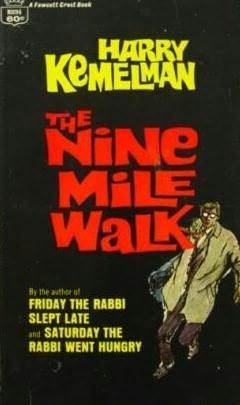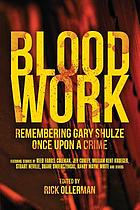When I shared the good news of the acceptance of a hard-to-place cross-genre short story on the Short Mystery e-list, I said: "I didn't even consider some of the usual mystery markets. When I write—or read—magic, I don't want it to be explained away at the end." I was thinking, for example, of Black Cat Mystery Magazine's submission guidelines, which stipulate: "We do not want stories that feature supernatural elements...unless thoroughly debunked by story’s end." My comment intrigued SleuthSayer Rob Lopresti, who wrote to invite me to write a piece in defense of magic in crime fiction.
The short story in question, "Roxelana's Ring," just out in the current issue of The J.J. Outré Review, is part of my Jewish historical Mendoza Family Saga. It involves jewel theft and a visit to my longtime protagonist Rachel Mendoza by one of her present-day descendants. Readers of the series first met Rachel as a 13 year old in hiding in 1493 after the expulsion of the Jews from Spain. Two stories about an older Rachel solving mysteries in 1520s Istanbul had already appeared in Black Cat. (Two more are currently in press, one with BCMM, the other in Jewish Noir 2.) But for this particular tale, I had to send the 21st-century Rachel back in time, and I couldn't explain it any other way than magic.
Some novel readers complain that stories are too short to satisfy them. They say a story doesn't give them time to engage fully with the characters or that it ends just as the reader is getting to know them. I try to write each story to refute such charges. For me, stories are like little novels. Complete in themselves, they must be rich in language, plot, and especially character. My novels contain more elaboration and complexity of plot and structure. But all my characters are as whole, as lifelike, as moving, as eloquent, and as much fun as I can make them, whether I'm presenting them in five thousand words or seventy-five thousand. The key to satisfaction, for me, is my commitment to character-driven fiction, both short and long—and as both writer and reader.
So to create plausible magic or supernatural beings that don't need to be debunked or treated differently from any other element in fiction, make them character driven. Charlaine Harris does this superbly. Her characters are as real as bread, so what does it matter if they're falling in love with vampires or hearing the dead speak under their feet? To me, those traits are more probable than their hitting their mark with every shot or disarming bombs at the last moment like the heroes of plot-driven novels. What I love about the best character-driven urban fantasy, SF, crime fiction, and cross-genre work mixing any and all of these is that it is first and foremost about the people and their story, their relationships, and that spark that makes us care about them, call it soul or heart or moral center or what you will. If the characters have that, neither the genre nor the length of the manuscript matter as much as we think they do.
I feel the same way about murder methods as I do about magic. Like most crime fiction authors, I enjoy discussing clever ways to kill people a bit too loudly in restaurants. But when I'm writing, I tend to keep it simple: a cord around the neck, a pillow over the face, a bang on the head with the proverbial blunt instrument. Let's do it fast and get on with the story.
In "Roxelana's Ring," the modern Rachel is holding a necklace that once belonged to her progenitrix, the first Rachel Mendoza, when she is unexpectedly whisked back to the 1520s. How? I have no idea, and I don't care. I'm much more interested in the fact that she comes to in the midst of a wriggling, giggling pile of Suleiman the Magnificent's concubines, "dressed," as she puts it, "not unlike sorority sisters at a come-as-your-dream-self slumber party." Aren't you?
The short story in question, "Roxelana's Ring," just out in the current issue of The J.J. Outré Review, is part of my Jewish historical Mendoza Family Saga. It involves jewel theft and a visit to my longtime protagonist Rachel Mendoza by one of her present-day descendants. Readers of the series first met Rachel as a 13 year old in hiding in 1493 after the expulsion of the Jews from Spain. Two stories about an older Rachel solving mysteries in 1520s Istanbul had already appeared in Black Cat. (Two more are currently in press, one with BCMM, the other in Jewish Noir 2.) But for this particular tale, I had to send the 21st-century Rachel back in time, and I couldn't explain it any other way than magic.
Some novel readers complain that stories are too short to satisfy them. They say a story doesn't give them time to engage fully with the characters or that it ends just as the reader is getting to know them. I try to write each story to refute such charges. For me, stories are like little novels. Complete in themselves, they must be rich in language, plot, and especially character. My novels contain more elaboration and complexity of plot and structure. But all my characters are as whole, as lifelike, as moving, as eloquent, and as much fun as I can make them, whether I'm presenting them in five thousand words or seventy-five thousand. The key to satisfaction, for me, is my commitment to character-driven fiction, both short and long—and as both writer and reader.
So to create plausible magic or supernatural beings that don't need to be debunked or treated differently from any other element in fiction, make them character driven. Charlaine Harris does this superbly. Her characters are as real as bread, so what does it matter if they're falling in love with vampires or hearing the dead speak under their feet? To me, those traits are more probable than their hitting their mark with every shot or disarming bombs at the last moment like the heroes of plot-driven novels. What I love about the best character-driven urban fantasy, SF, crime fiction, and cross-genre work mixing any and all of these is that it is first and foremost about the people and their story, their relationships, and that spark that makes us care about them, call it soul or heart or moral center or what you will. If the characters have that, neither the genre nor the length of the manuscript matter as much as we think they do.
I feel the same way about murder methods as I do about magic. Like most crime fiction authors, I enjoy discussing clever ways to kill people a bit too loudly in restaurants. But when I'm writing, I tend to keep it simple: a cord around the neck, a pillow over the face, a bang on the head with the proverbial blunt instrument. Let's do it fast and get on with the story.
In "Roxelana's Ring," the modern Rachel is holding a necklace that once belonged to her progenitrix, the first Rachel Mendoza, when she is unexpectedly whisked back to the 1520s. How? I have no idea, and I don't care. I'm much more interested in the fact that she comes to in the midst of a wriggling, giggling pile of Suleiman the Magnificent's concubines, "dressed," as she puts it, "not unlike sorority sisters at a come-as-your-dream-self slumber party." Aren't you?






















































